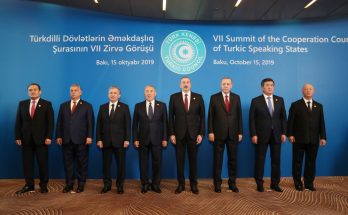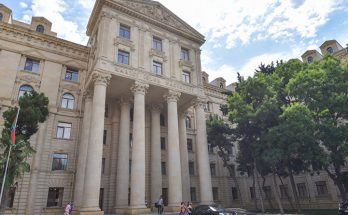 Bulent Aliriza, the Director and Senior Associate, Turkey project at Center for Strategic and International Studies (CSIS), interviewed by APA’s US bureau
Bulent Aliriza, the Director and Senior Associate, Turkey project at Center for Strategic and International Studies (CSIS), interviewed by APA’s US bureau
-After Prime Minister Recep Tayyip Erdoqan’s statement in Baku, will it not be too difficult to reach a progress on the recent Turkish-Armenian “Road Map”?
-For a long time, Turkey has identified 3 problems as obstacles on the road to the normalization with Armenia. First was the failure of the Armenian Republic which merged after the collapse of the Soviet Union to define its western border. Therefore, implying there could be claims to the territory of Turkey . The second was the support given by the government of Armenia to the Diaspora with respect to its activities on “the genocide issue.” The third was the occupation of Azeri lands in Nagorno-Karabakh. The Turks and Armenians have been talking to each other for some time and the speculation was that Turkey would not continue to insist on the evacuation of occupied Azeri lands as it proceeded to the normalization of relations with Armenia in accordance with the “Road Map”. What happened was that taking into account the negative reaction in Baku from the highest level down, the Prime Minister of Turkey made a statement saying that there would not be normalization and the opening of the border with the continuing occupation of Azerbaijani lands by the Armenians. Mr. Erdogan then visited Baku and reconfirmed this. The Armenians have reacted badly to this and are saying that Turks are not living up to their commitments to the “Road Map.” In fact, Turkey was always bearing in mind the interests of the Azeris although there was suspicion that this was not the case. So we returned to the situation which existed before. Now the Armenians will have to decide whether they want to continue toward normalization in spite of their unhappiness or not. But the Turkish position has been made clear now.
-Then what will be the future of the “Road Map”?
-The Armenians believed that the “Road Map” would mean that Turkey would ignore the interests of Azerbaijan. Clearly, they have now seen that that is not the case. How will they react to it? We will see. But the optimism, which was created that normalization was going to be happening immediately, has dissipated and we now have a much more realistic appraisal of the situation by all parties involved.
-Why do you think Turkey stepped back from its previous position?
-As part of it the desire to have ‘zero problems with its neighbors’ Turkey moved to improve its relations with its traditional enemy Greece, with Syria with which it had many problems, and has tried to improve relations with other countries like Iran and Bulgaria with which it also had difficulties in the past. Turkey then focused on Armenia . It was the country with which it had most problems. It proceeded into the diplomatic negotiations and tried to solve them. At the same time, Turkey has very close relationship with Azerbaijan. So what happened was that the progress on one front began to effect another, by which I mean that the dialogue with Armenia was perceived as being inimical to the relationship with Azerbaijan. What’s now happening is a correction which has made it clear that Turkey will not proceed on the diplomatic track with Armenia at the cost of its relationship with Azerbaijan. It was a “course correction” if you like, a balancing of interests. Of course, Turkey is interested in the normalization of its relations with Armenia but not to the point of jeopardizing its relations with Azerbaijan . I believe, we will see how it develops but you will see Turkey pursuing a much more balanced policy in the coming weeks and months.
APA




